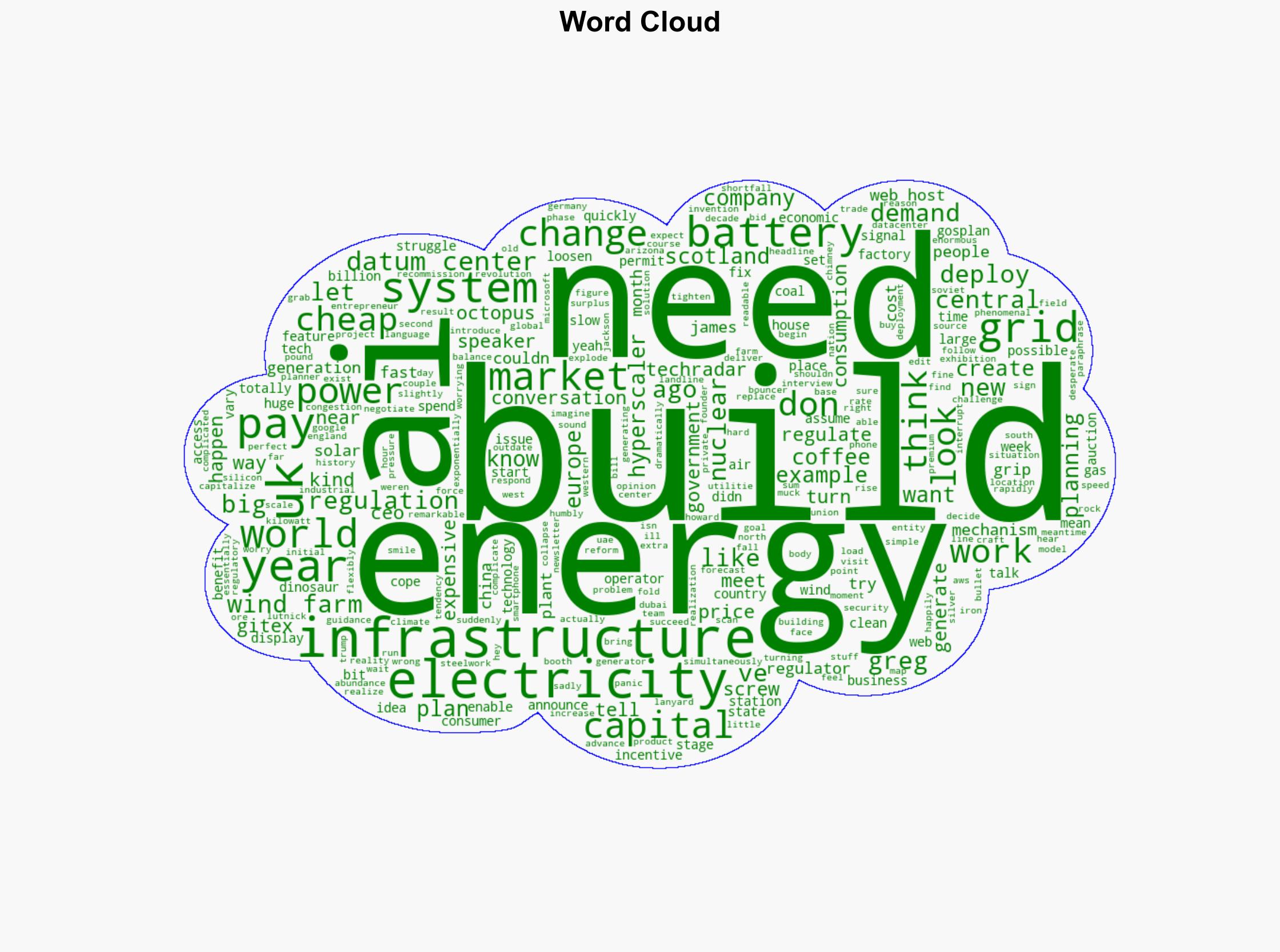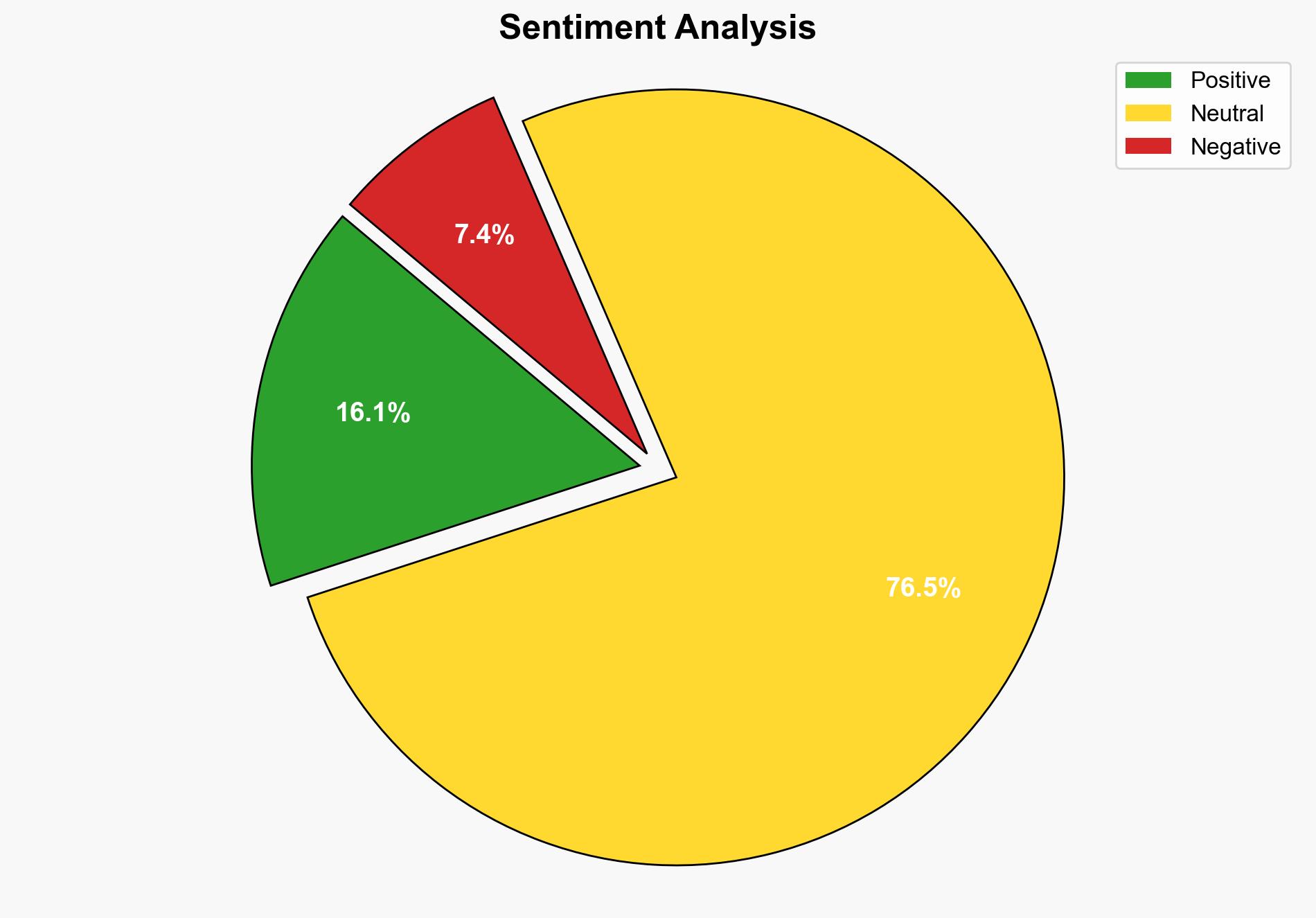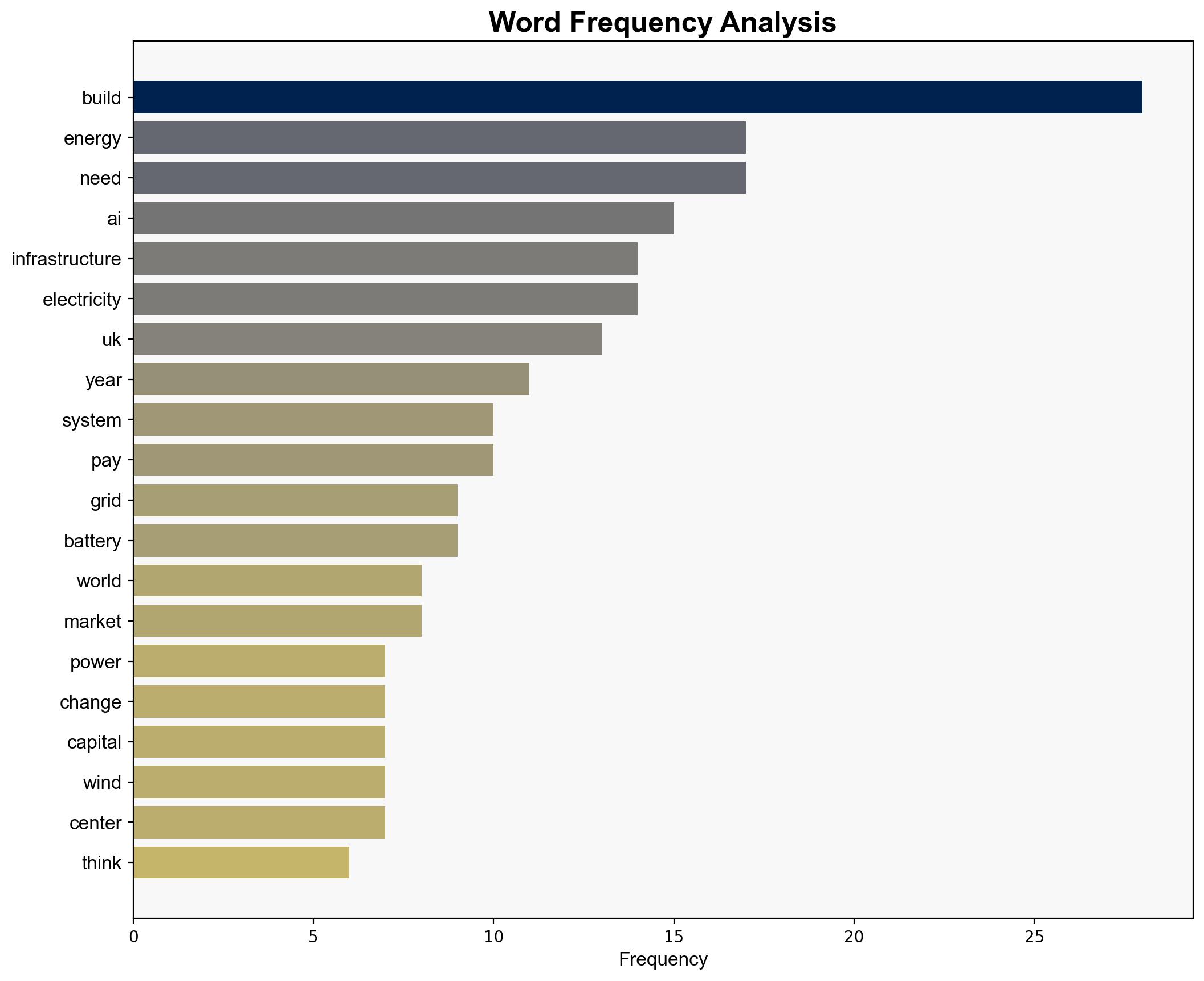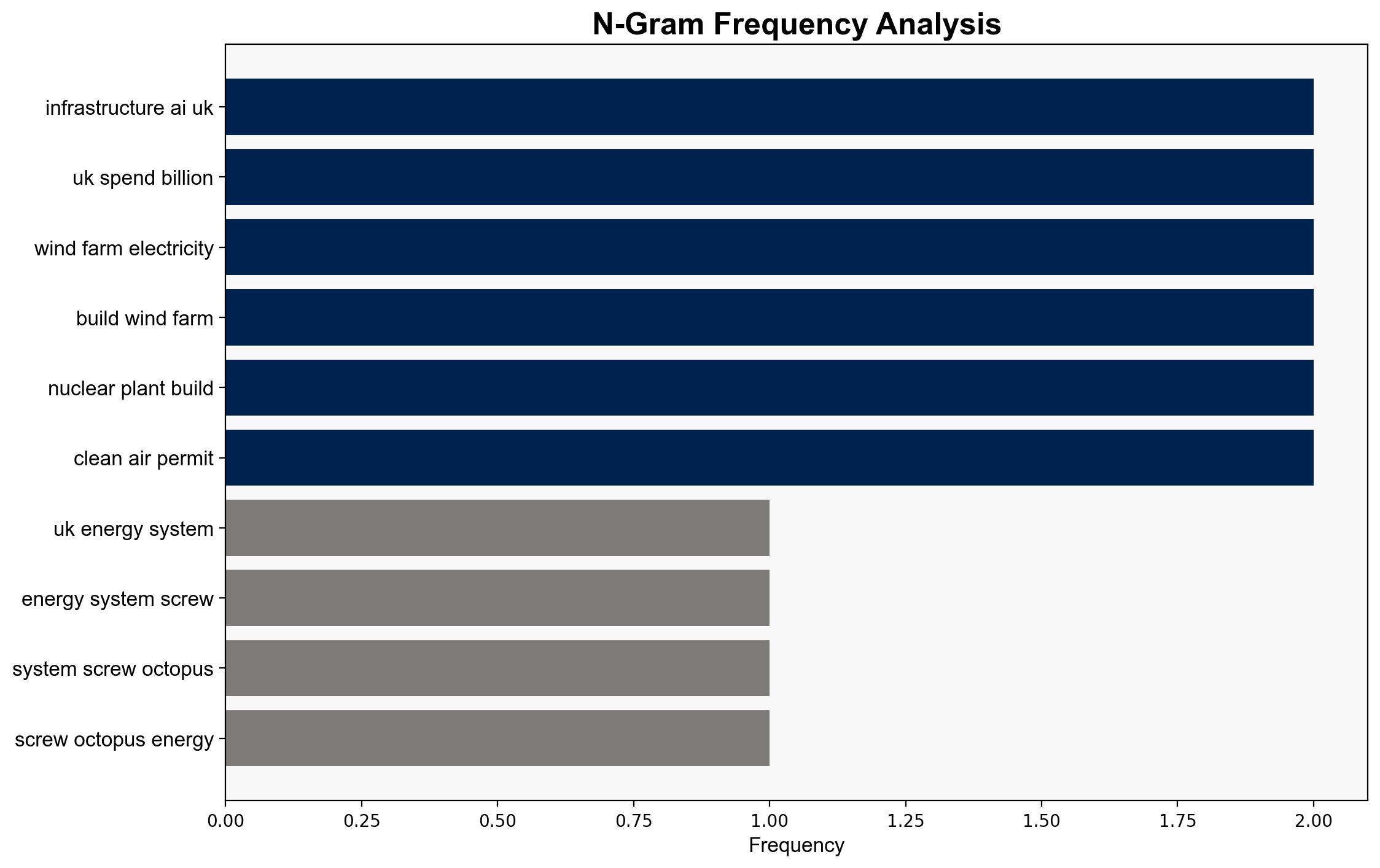UK energy system is screwed says Octopus Energy CEO – TechRadar
Published on: 2025-10-15
Intelligence Report: UK energy system is screwed says Octopus Energy CEO – TechRadar
1. BLUF (Bottom Line Up Front)
The UK energy system faces significant challenges due to outdated infrastructure and regulatory frameworks that fail to accommodate rapid technological advancements and shifts in energy demand. The most supported hypothesis suggests that regulatory reform and strategic investment in AI-driven infrastructure are critical to addressing these challenges. Confidence Level: Moderate. Recommended action includes initiating regulatory changes to enable market-driven solutions and incentivizing infrastructure development aligned with technological trends.
2. Competing Hypotheses
1. **Hypothesis A**: The UK energy system’s issues stem primarily from outdated infrastructure and regulatory frameworks that are unable to adapt to the rapid changes in energy demand and technology, particularly AI. This hypothesis suggests that without significant regulatory reform and investment in AI-driven solutions, the system will continue to struggle.
2. **Hypothesis B**: The challenges in the UK energy system are exaggerated, and the current infrastructure, with minor adjustments, can adapt to new demands. The focus should be on optimizing existing resources and gradual integration of new technologies rather than overhauling the regulatory framework.
Using Bayesian Scenario Modeling, Hypothesis A is better supported due to the increasing complexity and unpredictability of energy demands driven by AI and other technologies, which current regulations and infrastructure are ill-equipped to handle.
3. Key Assumptions and Red Flags
– **Assumptions**: Hypothesis A assumes that AI and technological advancements will continue to drive energy demand unpredictably. Hypothesis B assumes that current infrastructure can be optimized to meet future demands.
– **Red Flags**: Potential bias in the CEO’s statements, as they may reflect a vested interest in promoting AI solutions. Lack of specific data on the current capacity and adaptability of existing infrastructure.
– **Blind Spots**: The analysis may overlook geopolitical factors affecting energy supply and demand, such as international energy policies and trade agreements.
4. Implications and Strategic Risks
– **Economic**: Failure to adapt could lead to increased energy costs and economic inefficiencies, impacting businesses and consumers.
– **Cyber**: Increased reliance on AI and digital solutions could expose the energy grid to cyber threats.
– **Geopolitical**: Inadequate energy infrastructure may weaken the UK’s position in international energy markets and negotiations.
– **Psychological**: Public perception of energy insecurity could lead to decreased confidence in government and regulatory bodies.
5. Recommendations and Outlook
- **Regulatory Reform**: Initiate comprehensive reviews of energy regulations to accommodate technological advancements and market-driven solutions.
- **Investment in AI**: Encourage public and private investment in AI-driven infrastructure to enhance grid efficiency and adaptability.
- **Scenario Projections**:
– **Best Case**: Successful regulatory reform and investment lead to a resilient and efficient energy system.
– **Worst Case**: Continued regulatory inertia results in escalating energy costs and systemic inefficiencies.
– **Most Likely**: Partial reforms improve the system incrementally, but significant challenges remain.
6. Key Individuals and Entities
– Greg Jackson, founder and CEO of Octopus Energy.
– Major tech companies like Microsoft, AWS, and Google, which are influential in AI and energy sectors.
7. Thematic Tags
national security threats, cybersecurity, energy infrastructure, regulatory reform, AI integration




